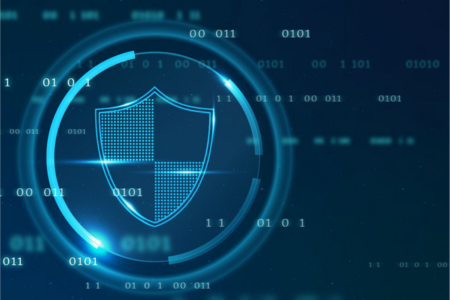In these advanced times when technology and the internet plays a huge role, safeguarding your digital identity has never been more critical.
Your virtual identity consists of personal information, social media platforms, and all the data you leave behind online.
As cyber-attacks are on the rise, it’s essential to take proactive steps to ensure your digital security. In this article, we share some valuable tips to help you protect your digital identity and keep your online presence secure.
Strong And Unique Passwords
Your digital identity depends on robust password creation. To ensure your security, follow these guidelines:
- The first tip: use both uppercase and lowercase letters along with numbers and special characters.
- Birthdates and obvious names are no good! Avoid using common passwords or easy-to-guess information.
- Make sure to use a unique password for each online account. This will stop multiple accounts from being compromised during one data breach.
- A reliable option is using password-keeping tools like a password manager to manage and secure your passwords.

Enable Two-Factor Authentication (2FA)
Two-Factor Authentication is a very effective way to make your online accounts more secure. It adds an extra layer of protection from unauthorized access by requiring an additional verification step.
This second step can come in various forms such as a fingerprint scan or the use of one-time text message codes.
It’s especially important to enable 2FA on accounts containing sensitive information such as email or banking accounts.
Fortunately, 2FA is an option on most websites and services and enabling it is usually a straightforward process which can be accomplished with a few clicks of the mouse.
Be Cautious Of Phishing Attempts
Phishing attacks that lure you into revealing your confidential information are rampant; don’t be a victim and follow these safety guidelines:
- Beware of unsolicited emails, messages, or phone calls that request personal credentials. Don’t give in to the temptation of sharing any valuable information.
- Authenticate the legitimacy of emails first, paying attention to the sender’s address and avoiding being click-bait! Confirm that the website URLs are secure, beginning with “https://”, before entering any login credentials.
- Being aware of such kinds of phishing techniques is essential, so educate yourself and stay sharp in keeping your information private.
Keep Software And Devices Updated
Keeping your digital identity secure requires regular updates of your operating systems, web browsers and software applications. These updates have patches that address and rectify known vulnerabilities.
By using the best incognito browser and staying current with updates, you reduce the possibility of cybercriminals gaining access to your personal information.
An effective way to make sure you never miss an important update is to automatically update your software when possible. This ensures that you always have the latest security patches against potential threats.
Practice Safe Browsing Habits
Your digital identity needs protection and you can make sure of it by adopting safe browsing habits:
- Downloading software or apps only from trustworthy sources like verified websites or official app stores.
- Preventing malicious software infections by using reputable antivirus and anti-malware software to detect them.
- Sharing personal information on public Wi-Fi networks or unfamiliar websites should be avoided at all costs.
- Clearing your browsing history, cookies, and cache on a regular basis in order to minimize the accumulation of sensitive data.

Protect Your Social Media Privacy
Social media has evolved into a haven for cybercrime. With oversharing it’s pretty easy to give away too much personal information. Here are some tips on how to enhance your social media privacy:
Firstly, review and adjust your cookies, privacy settings, and sharing of location data. This allows control over who can view any information like posts, personal information, and your profile. This method enables you to share as little or as much as you feel comfortable with.
Secondly, bits of information like your address, phone number, DOB should be kept private. Also, be sure to regularly audit the list of your friends and connections removing any suspicious accounts.
Lastly, be cautious of those that use social engineering tricks. If someone suspicious sends you a friend request or sends a request for personal information like banking details or credit/debit card details in messages, don’t forget you can just ignore them altogether.
Conclusion
Online security is critical. Protecting yourself is important to safeguard your digital identity and prevent identity theft or unauthorized access.
Be proactive and well informed, ensure your online security protects yourself against potential cyber threats.
If you want to maintain your digital identity, adopt solid online security practices and complete regular risk assessments. Your digital self is valuable, and it’s your responsibility to keep it safe.








